
Vatican City, Oct 2, 2019 / 05:34 am (CNA).- Guidance by the Holy Spirit is integral to sharing the Gospel with others and bringing them to Christ, Pope Francis said during the general audience Wednesday.
To try to convince people that Jesus is God without the guidance of the Holy Spirit “is not evangelization,” he said Oct. 2. “If there is no Holy Spirit there is no evangelization.”
“This can be proselytism, publicity… But evangelization is letting yourself be guided by the Holy Spirit, let him be the one to push you to the announcement, to the announcement with witness, even with martyrdom, even with the word.”
Francis prayed that the Holy Spirit will “make baptized men and women who announce the Gospel to attract others not to themselves but to Christ, who know how to make room for God’s action, who know how to make others free and responsible before the Lord.”
In his general audience catechesis, Pope Francis reflected on the importance of the Holy Spirit in the Apostles’ evangelization following an outbreak of persecution against Christians after the martyrdom of St. Stephen.
“In the Book of Acts, persecution appears as the permanent state of the disciples’ life, in accordance with what Jesus said: ‘If they persecuted me, they will also persecute you,’” the pope said.
“But,” he added, “the persecution, instead of extinguishing the fire of evangelization feeds it even more.”
The pope told the story of the Apostle Philip, who had begun to evangelize the city of Samaria, which saw signs of healing and deliberation with the proclamation of the Word.
“At this point the Holy Spirit marks a new stage in the journey of the Gospel: it pushes Philip to go towards a stranger with a heart open to God,” Francis said.
Philip is preaching with enthusiasm on a deserted and dangerous road, he explained, when a high official of the queen of Ethiopia, the administrator of her riches, approaches.
This man was returning to his country from being in Jerusalem for worship. He reads the scroll of the prophet Isaiah, in particular, the fourth chant of the “servant of the Lord.”
“Philip approaches the carriage and asks him: ‘Do you understand what you are reading?’ (Acts 8.30). The Ethiopian replies: ‘And how could I understand, if no one guides me?’ (Acts 8:31),” he said.
“That powerful man acknowledges that he needs to be guided to understand the Word of God,” Francis stressed, adding that he has the humility to acknowledge that possession of money does not aid understanding.
Pope Francis said this dialogue helps Catholics to understand that it is not enough to read scripture, “we need to understand its meaning, find the ‘sap’ by going beyond the ‘bark,’ drawing the Spirit that animates the letter.”
He noted something Benedict XVI said at the beginning of the 2008 Synod of Bishops on the Word of God, that “exegesis, the true reading of Sacred Scripture, is not just a literary phenomenon, […]. It is the movement of my existence.”
“Entering the Word of God is being willing to go out of one’s own limits to meet and conform to Christ who is the living Word of the Father,” he said.
Finally, the Ethiopian man recognizes Christ and asks for baptism and professes faith in the Lord Jesus.
This is a beautiful story, the pope said, but who pushed Philip to go to the desert and to approach this man? “It is the Holy Spirit. The Holy Spirit is the protagonist of evangelization.”
At the end of the audience, Pope Francis greeted the seminarians of the Pontifical North American College, the American seminary in Rome, and their families. The NAC’s fourth-year seminarians will be ordained to the transitional diaconate in St. Peter’s Basilica in the morning Oct. 3.
“Upon all of you, and your families, I invoke the joy and peace of our Lord Jesus Christ,” the pope said. “May God bless you!”
If you value the news and views Catholic World Report provides, please consider donating to support our efforts. Your contribution will help us continue to make CWR available to all readers worldwide for free, without a subscription. Thank you for your generosity!
Click here for more information on donating to CWR. Click here to sign up for our newsletter.




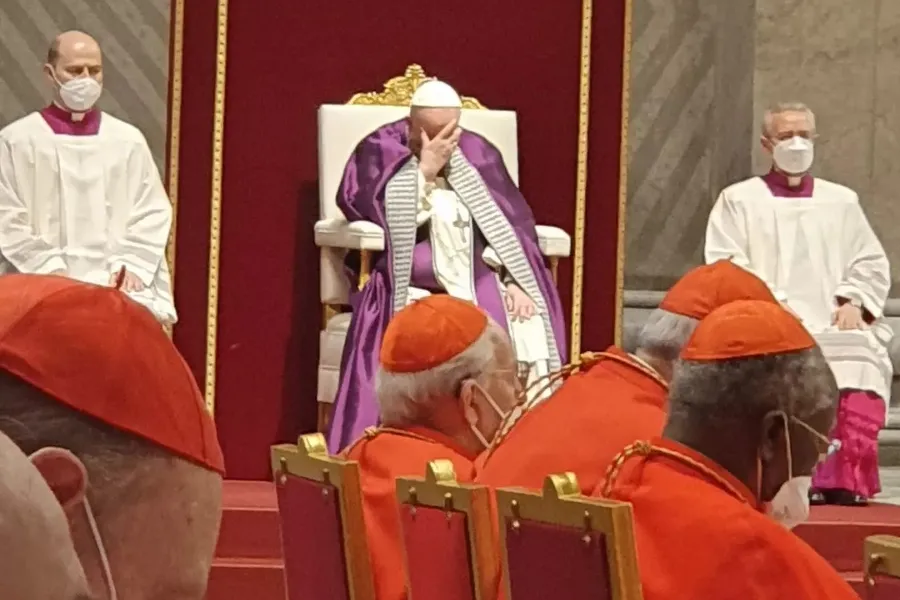

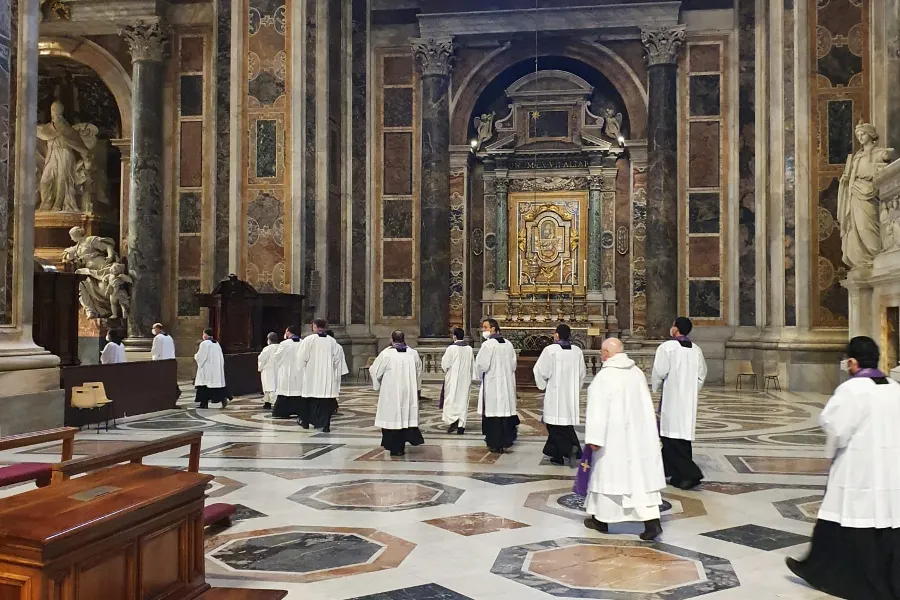
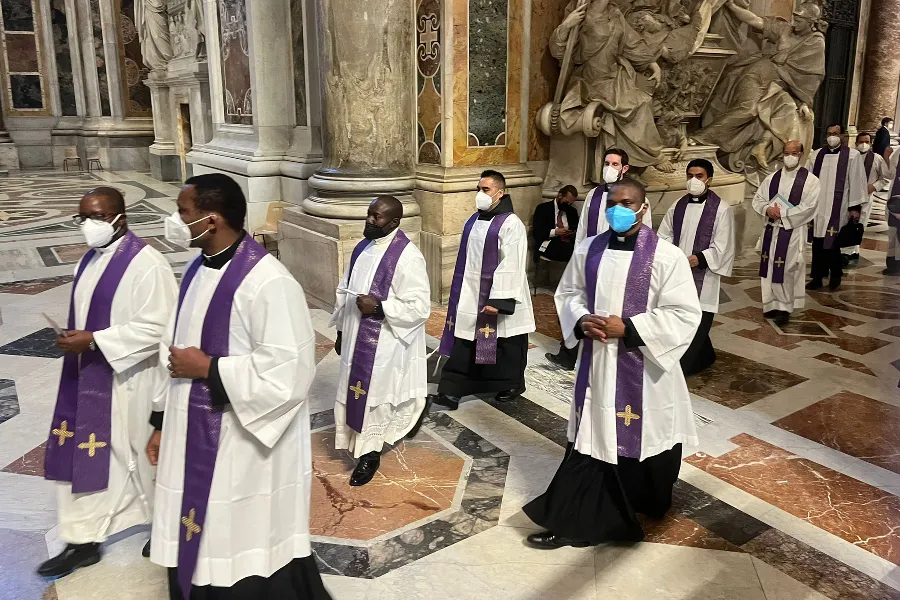
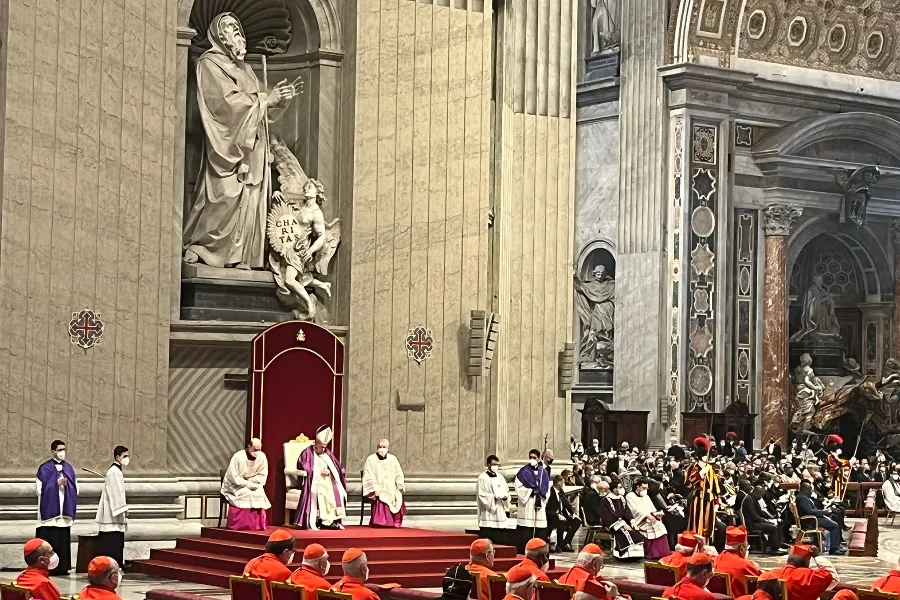
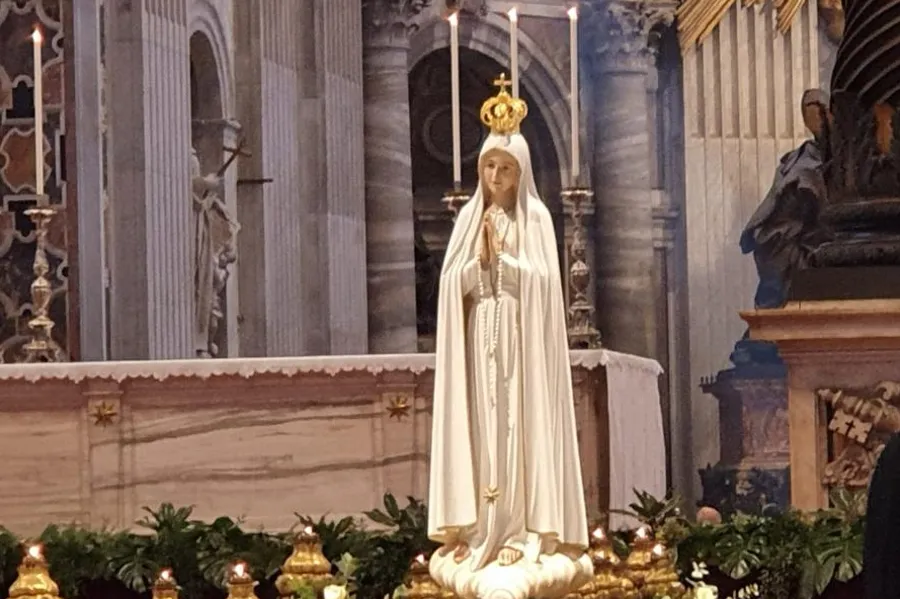
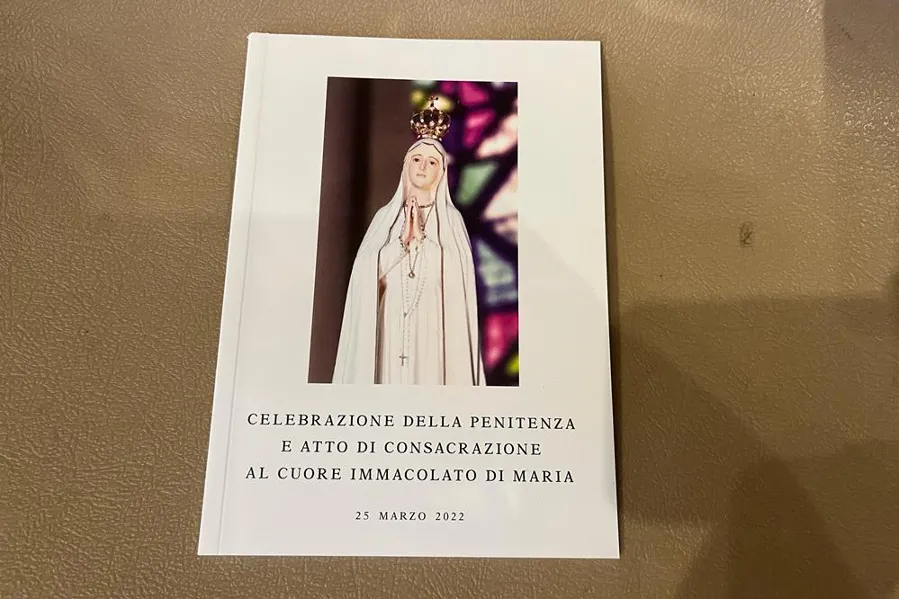
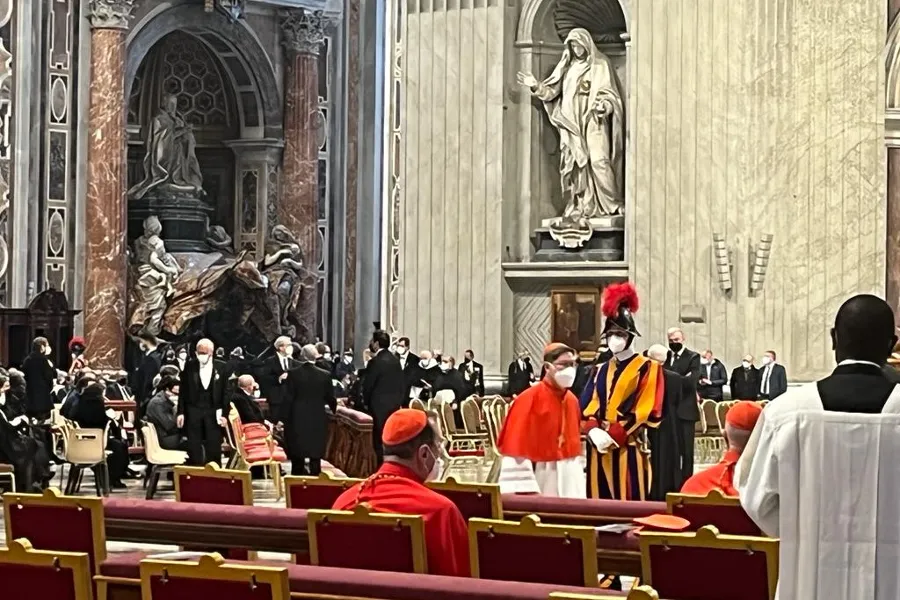
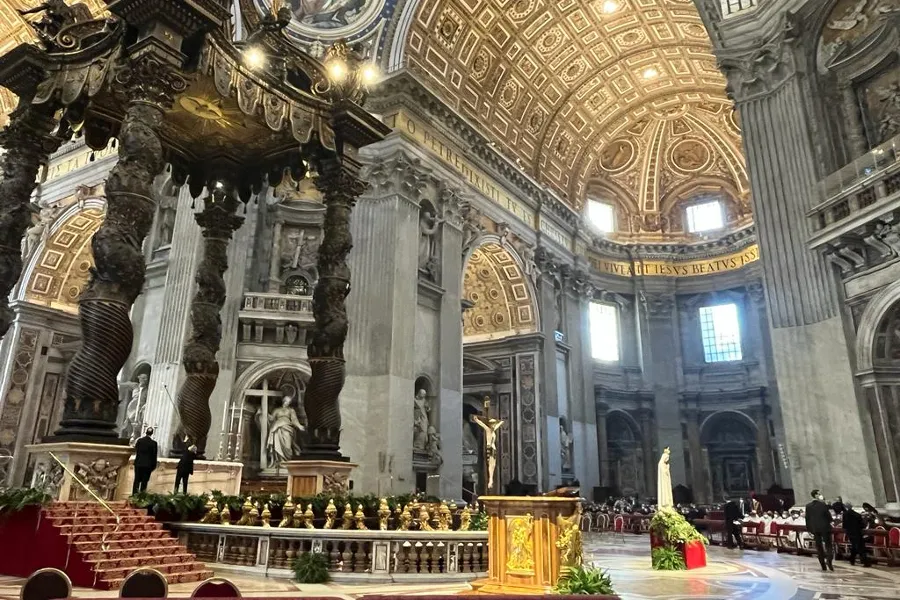
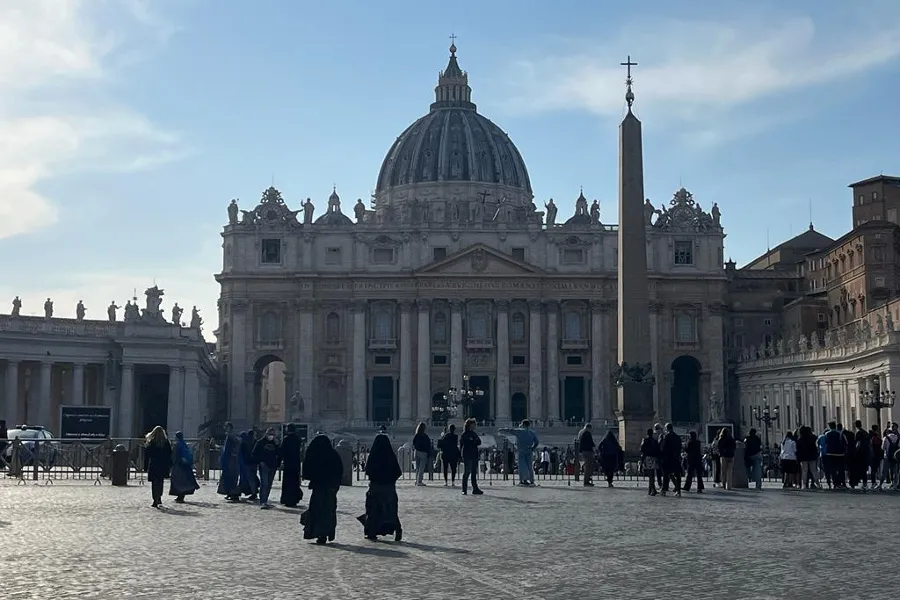
Benedict XVI, at the beginning of the 2008 Synod of Bishops on the Word of God, is quoted as saying: “exegesis, the true reading of Sacred Scripture, is not just a literary phenomenon, […]. It is the movement of my existence.” The theologian Von Balthasar also had this to say about the workings of the Holy Spirit:
“Because [the] letter [read: “literary phenomenon”] cannot of its very nature be the same thing as spirit, and because what is written is necessarily fragmentary (Jn 20:30, 21:15), the Church is the interpreter of what has already been uttered in Revelation, but is continually being illuminated in new ways in the mediation of the Church, guided by the HOLY SPIRIT, present it to the light of conscious faith. Ultimately, the continuity of the interpretation does not reside in the human consciousness of believers or of the Church, but in the Holy Spirit. And what is continuity for him is apt, often enough, to look incomprehensibly disjointed to men” (A Theology of History, 1959/1963/1994).
Which is probably why BENEDICT XVI also has remarked on “discontinuity WITHIN continuity.”
But, SET ASIDE by many Vatican insiders is this, too, from Balthasar:
“The truths that come into new prominence CAN NEVER CONTRADICT THE OLD, but nevertheless the Spirit can in every age blow where it will, and in every age can bring to the fore entirely new aspects of divine Revelation.”
The so-called “rigidity” of so many level heads, then, is not due a psychiatric unwillingness to embrace “ever-increasing abundance,” nor any “fixistic” compulsion to “gradually narrow down” the unexplored area of divine truth—but, instead, is an appeal to the self-evident FIRST PRINCIPLE OF NON-CONTRADICTION.
A principle not to be owned/edited/abused by clericalist theologians even in high places. So as for the advertised menu at Amazonia/Germania, the self-referential (!) red-hat test does not presume to decapitate THE MORE BASIC RED-FACE TEST.